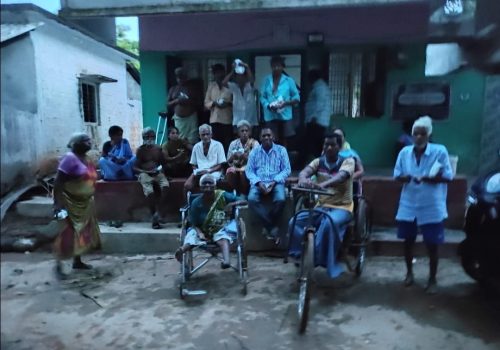Early Detection and Diagnosis: These camps facilitate the early detection of leprosy cases. Timely diagnosis is crucial for starting treatment promptly and preventing the progression of the disease and associated complications.
Treatment and Medication Distribution: Health professionals at these camps provide necessary medical treatment, usually in the form of multidrug therapy. They also ensure that affected individuals have access to the prescribed medications.
Wound Care and Rehabilitation: Leprosy can lead to skin lesions and nerve damage. Medical camps may include wound care and rehabilitation services to address the physical consequences of the disease.
Health Education: Educational sessions are often conducted to raise awareness about leprosy, its causes, symptoms, and the importance of early treatment. Education helps dispel myths and reduce the stigma associated with the disease.
Community Outreach: Medical camps often extend their services beyond direct patient care. They engage with the community, providing information on preventive measures, promoting hygiene, and addressing misconceptions about leprosy.
Counseling and Psychosocial Support: Leprosy can have significant psychosocial implications due to societal stigma. Medical camps may offer counseling services to support affected individuals and their families emotionally.
Follow-up Care: Many medical camps include plans for follow-up care to ensure that patients continue to receive the necessary treatment and support.
Organizations such as governments, non-governmental organizations (NGOs), and healthcare institutions often collaborate to organize and execute leprosy medical camps. These events contribute to the global effort to eliminate leprosy and improve the quality of life for those affected by the disease. Additionally, the camps play a crucial role in reducing the prevalence of leprosy and preventing disabilities associated with late or untreated cases.



